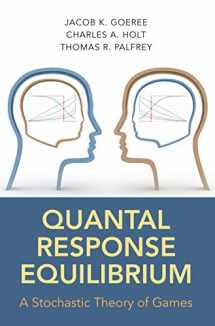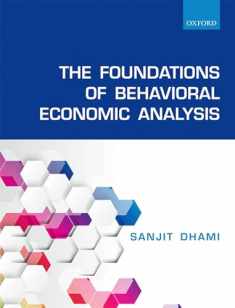
Quantal Response Equilibrium: A Stochastic Theory of Games
Book details
Summary
Description
Quantal Response Equilibrium presents a stochastic theory of games that unites probabilistic choice models developed in psychology and statistics with the Nash equilibrium approach of classical game theory. Nash equilibrium assumes precise and perfect decision making in games, but human behavior is inherently stochastic and people realize that the behavior of others is not perfectly predictable. In contrast, QRE models choice behavior as probabilistic and extends classical game theory into a more realistic and useful framework with broad applications for economics, political science, management, and other social sciences.
Quantal Response Equilibrium spans the range from basic theoretical foundations to examples of how the principles yield useful predictions and insights in strategic settings, including voting, bargaining, auctions, public goods provision, and more. The approach provides a natural framework for estimating the effects of behavioral factors like altruism, reciprocity, risk aversion, judgment fallacies, and impatience. New theoretical results push the frontiers of models that include heterogeneity, learning, and well-specified behavioral modifications of rational choice and rational expectations. The empirical relevance of the theory is enhanced by discussion of data from controlled laboratory experiments, along with a detailed users' guide for estimation techniques.
Quantal Response Equilibrium makes pioneering game-theoretic methods and interdisciplinary applications available to a wide audience.


We would LOVE it if you could help us and other readers by reviewing the book
Book review




